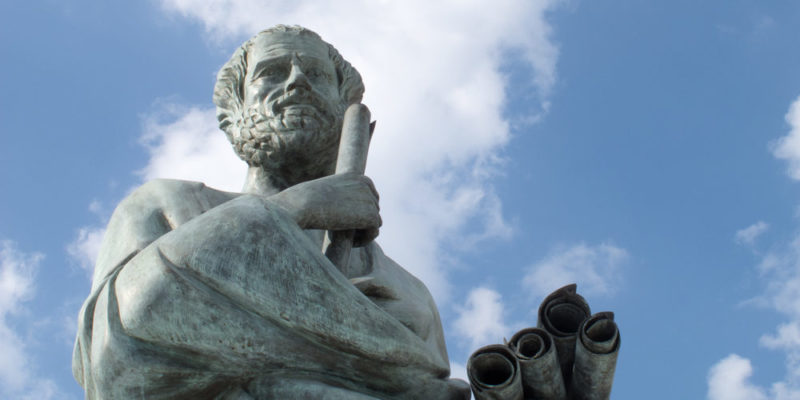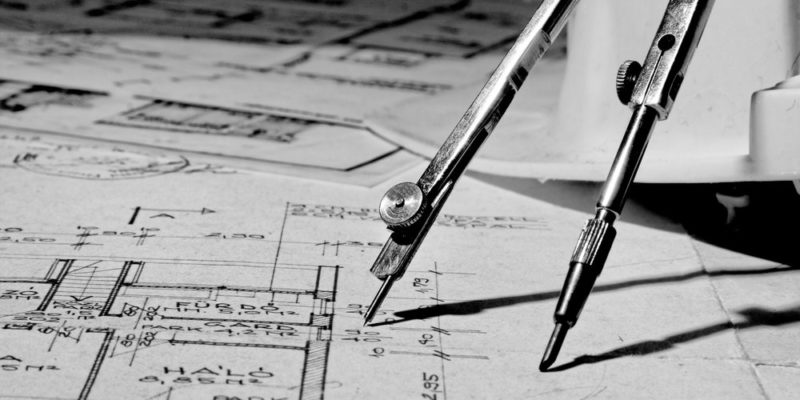We explain what mathematics is, what its history is like and what this science is for. Also, what are its characteristics and classification.
What is mathematics?
When we speak of mathematics or mathematics, we refer to a set of formal languages that, starting from axioms and obeying logical reasoning, serve to pose and solve problems in a precise (unambiguous) way, within the framework of very specific contexts.
This means that mathematics is a set of formal laws , that is, abstract, that concern objects in the mind of man , such as numbers, angles, geometric shapes, etc.
Mathematics deals with the structure, order, relationship, accounting , measurement or description of objects, but not what they are, what they are composed of, or the specific aspects of the universe .
The study of mathematics involves understanding a number of complex reasoning systems , combining axioms and theorems derived from them.
It is considered that, along with verbal language, mathematics is one of the most powerful , vast and complex mental tools created by humans.
Is it a science?

Mathematics is, in effect, a formal science .
"Formal" means that it deals with ideal objects and not with real objects.
Numbers, geometric shapes, square roots, etc., are not things that one can take or move around , but mental tools.
As such they make sense in their own framework of operations, that is, in their specific context of understanding.
However, mathematics is also an exact science , insofar as it does not give rise to interpretation, subjectivity or doubt in its reasoning, but is handled in terms of accuracy.
The result of a calculation operation , for example, will always be the same if it is performed properly, regardless of who performs it, where, or for what purpose.
This means that its results are replicable , verifiable and always true, which allows it to pass the tests of the scientific method .
History of mathematics

The word mathematics comes from the ancient Greek word mathëmatiká , which would translate something like "things that are learned."
This is because the ancients distinguished the “mathematical art” ( mathëmatiké tékhnë ), from other fields of knowledge, such as the “art of music” ( mousikë tékhnë ), because music could be appreciated despite not having been instructed, while mathematics does not; to appreciate it you had to learn about it .
However, what we understand as mathematics is much older in human history, since it could have had the same temporal origin as writing .
In fact, it is thought that the first attempts to take written notes corresponded to numbers and accounting, rather than words and senses.
This type of system already existed in ancient Egypt and ancient Mesopotamia , although the Greeks were the first to consider it a branch of philosophy .
The first Greek mathematicians date from the 6th century BC. C. and they were the so-called Pythagoreans, disciples of Pythagoras (c. 569 - c. 475 BC).
Later the mathematical study would draw the attention of the great Greek philosopher Aristotle (4th century BC), and later still of the Latin Cicero (106 - 43 BC).
During the Middle Ages it was a field widely investigated by alchemists and Islamic scholars, until its reappearance in the Renaissance , at the service of humanistic and scientific knowledge renewed in the West .
What is mathematics for?

Mathematics is a very powerful mental tool .
It allows the human being to carry out a vast and complex series of operations that have a direct impact on real life, such as the description and analysis of spaces , quantities, relationships, shapes, proportions and certainty.
Without it, it would not be possible to calculate, measure, or logically deduce , things that we use every day in our lives without even stopping to think that we are applying the fundamentals of an extremely ancient science .
Branches of mathematics
It is possible to recognize some 5000 branches of mathematics, which are traditionally grouped into four large “pure” mathematical fields:
- Quantity. Where are the numbers: natural numbers, integers, real, rational, complex, etc.
- Structure. Where numbers and their relationships are used to describe and represent shapes and sets: algebra, number theory, combinatorics, graph theory, group theory, etc.
- Space. Where the numbers are at the service of the measurement of space and the calculation of the various possible relationships between spatial representations: geometry, trigonometry, differential geometry, topology, etc.
- Change. Where the numbers serve to express changing relationships, movements, displacements and change in general: calculus, vector calculus , dynamic systems, differential equations, chaos theory, etc.
Applications of mathematics

In addition to the "pure" fields of mathematics or entirely formal, there are areas in which mathematics is dedicated to the study of aspects of other areas of knowledge , especially to the construction of tools for analysis and problem solving.
Some of them are:
- Statistics Mathematics applied to probability and the ability to predict events on a percentage or proportional scale, in order to make informed decisions .
- Mathematical models. Numerical representations are used as a form of simulation of aspects of reality, to try to predict or understand in the abstract the relationships that exist in it. It is particularly useful in computing .
- Financial mathematics. Applied to the world of finance , mathematics lends its formal language to the expression of the economic and commercial relationships that make up this aspect of society .
- Mathematical chemistry. Chemistry uses it to express the proportional relationships that occur in the various and possible reactions of matter .
Why is math important?
Mathematics allows the written expression of numerous real-world relationships , and opens the door to much more complex abstract formulations and calculations.
In human development, this meant significant growth in their ability to abstract and handle complex ideas .
It is a field of research that seems arid and detached from real life, but from which gigantic advances have emerged in other sciences , industries and technologies , otherwise they would lack a formal language to express their operations.
Types of operations

According to Chevallard, Bosch and Gascón, there are three types of operations that can be carried out with mathematics:
- Use familiar mathematics. Take procedures invented by others and apply them to their own problems to solve them, using accumulated numerical and logical knowledge as tools.
- Learn and teach math. Faced with a complex problem, we can turn to experts in mathematics or books on it, to learn to use hitherto unknown methods and expand our reserve of numerical tools.
- Create new math. If there is no mathematical tool that can help us solve a specific problem, we can create one, taking as a starting point those we already know.
What sciences use mathematics?
Practically all the exact and social sciences use mathematics to express their relationships and content.
From engineering, biology , chemistry, physics, astronomy and computing, in which this formal language is an indispensable base, to sociology , architecture , geography , psychology or graphic design, in which it plays a leading and determined role.
Logical-mathematical intelligence

According to Howard Gardner's model of intelligences in his Theory of Multiple Intelligences, the ability to use mathematics with ease and / or speed usually involves an aspect of the human mind known as logical-mathematical or logical-formal intelligence.
It is supposed to be essential in people with a scientific vocation , and it is a type of intelligence that facilitates working with abstract concepts or complex arguments .
Famous mathematicians
Among the most important mathematicians in history are:
- Pythagoras of Samos (570-495 BC)
- Euclid (c. 325 - c. 265 BC)
- Leonardo Pisano Bigollo (1170-1250)
- René Descartes (1596-1650)
- Leonhard Euler (1707-1783)
- Andrew Wiles (1953-)
Passionate about understanding and contributing to a world that does not stop changing. New forms of Work, Sustainability and Technology. For many years he has worked as a creative for large international companies. He has a Ph.D. in information technology and he has been doing quantitative research in the interdisciplinary areas of information systems, cyber security, data analytics and artificial intelligence. He continue to look for creative solutions through technology to help companies to be more humane and sustainable..
Leave a reply
Your email address will not be published. Required fields are marked *Recent post

Sport: What Is It, Types, Risks, Features, Characteristics and Examples

Dogs: Emergence, Features, Characteristics, Feeding and Breeds

Story: Definition, Elements, Structure, Features and Characteristics

